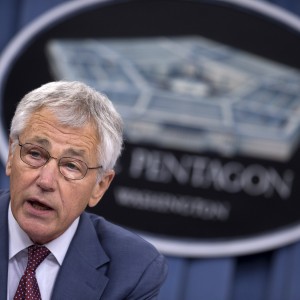UP prof doubts Hagel’s no-bases line
CITY OF SAN FERNANDO—A university professor, whose input helped the Senate reject the extension of a bases treaty on Sept. 16, 1991, doubts the assurances made by US Defense Secretary Chuck Hagel that the United States would not revive permanent bases in the Philippines.
Professor Roland Simbulan of the University of the Philippines said Hagel’s statement masked a US strategy that intends to “consolidate US interventionary forces in the Asia Pacific.”
Simbulan said the US had “long wanted to move a significant number of its forces from the 1st US Marine Expeditionary Forces to the Philippines from Okinawa [Japan], where they have committed heinous crimes ranging from the rape of Okinawan school children to environmental destruction during live fire military exercises.”
He said that as early as 2003, 12 years after the Senate voted to close the Subic Naval Base in Zambales, Camp John Hay in Baguio City and Clark Air Base in Pampanga, the US set up administrative, training, logistical and communications structures inside Philippine Army bases.
In 1999, then President Joseph Estrada, one of the senators who rejected the bases treaty, signed the Visiting Forces Agreement (VFA) which authorized joint military exercises by American and Filipino troops in the country.
The Philippine bases, Simbulan said, still perform the functions of an American-controlled base. “They may call it any name, but it is still a base to project US military forces for their military missions,” he said.
The Philippines, Simbulan warned, would be a “disposable pawn in America’s economic and political rivalry with China.”
He said the Philippines’ role in American strategic programs allows the US access to resources in the West Philippine Sea (South China Sea).
He said members of the Association of Southeast Asian Nations and China were the “real stakeholders” who should share maritime and offshore resources with the Philippines.















